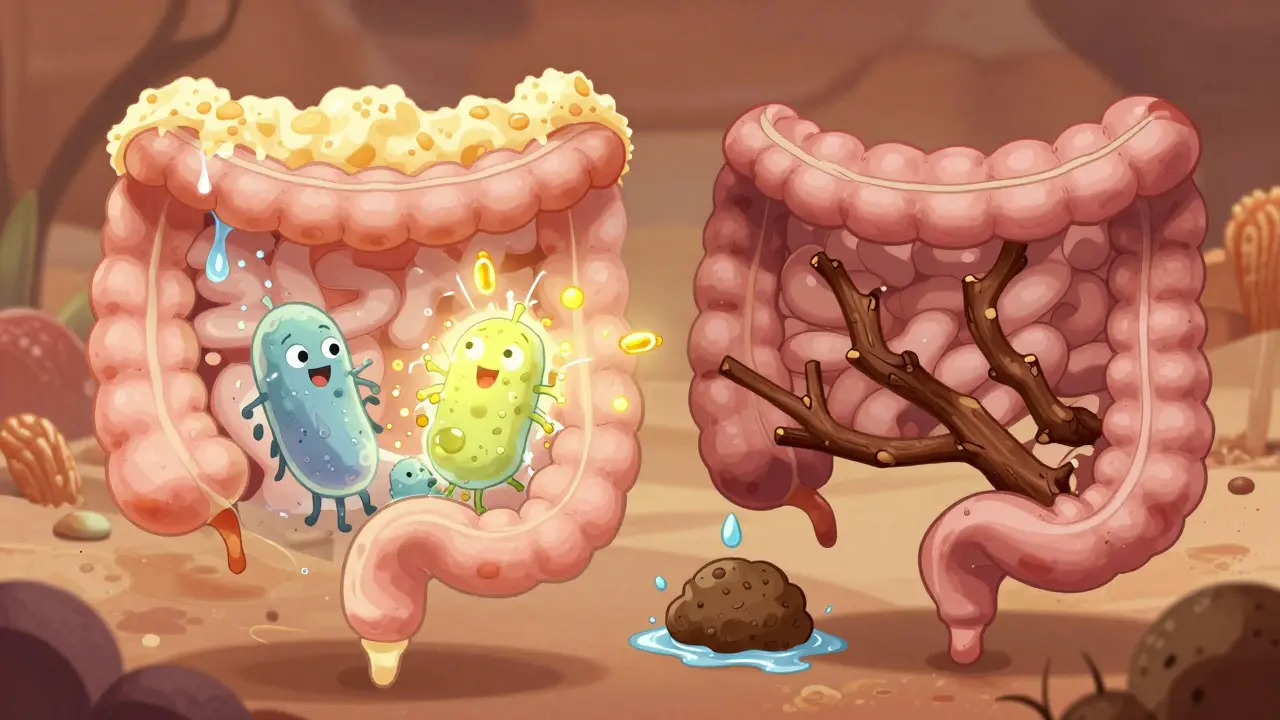Gut health: simple, practical fixes that work
Your gut holds trillions of microbes that affect digestion, mood, sleep, and immunity. If your digestion is off, fixing the gut often helps fast — but not with magic pills. Try small changes you can keep doing.
Start by aiming for fiber and real food. Fiber feeds good bacteria; try to add vegetables, beans, oats, and whole grains. Increase fiber slowly over two weeks to avoid bloating. Add fermented foods for live bacteria: plain yogurt, kefir, sauerkraut, or kimchi a few times a week. If you do take a probiotic supplement, choose one with clearly listed strains and at least a billion CFUs; try it for four weeks and track changes.
Cut back on added sugars and highly processed foods. These feed harmful bacteria and can worsen symptoms like gas, loose stools, or fatigue. Swap sugary snacks for fruit, nuts, or a small plain yogurt with berries. Drink water throughout the day and limit sodas and sweetened drinks.
Quick wins: what to try this week
Small actions you can start right now:
- Walk 20–30 minutes after meals to improve digestion.
- Add one serving of vegetables to every meal.
- Replace one refined carb with a whole-grain option (brown rice, whole-wheat bread).
- Try a fermented food daily—start with a tablespoon of sauerkraut or a small cup of kefir.
- If you’ve recently finished antibiotics, consider a probiotic for a month to help rebalance microbes.
Don’t ignore sleep and stress. Poor sleep and high stress change your gut flora and gut lining. Aim for 7 hours of sleep and use simple stress tools: deep breathing for 2–3 minutes, short walks, or a 10-minute unwind routine before bed. Also, chew your food slowly; digestion starts in the mouth and proper chewing reduces bloating.
When to see a doctor
Some gut problems need tests or medicines. See a clinician if you have persistent severe belly pain, unexplained weight loss, blood in stool, or ongoing vomiting. Ask about stool tests, celiac screening, breath testing for SIBO, or referrals to a gastroenterologist if symptoms continue despite lifestyle changes.
Think about prebiotics and resistant starch too. Foods like garlic, onions, leeks, asparagus, oats, and cooled cooked potatoes feed good bacteria. Resistant starch from cooled rice or potatoes and unripe bananas helps stool bulk and produces butyrate, a fuel for gut cells. If you have bloating or IBS, try a low-FODMAP test under guidance — it can point out which carbs trigger symptoms. Avoid long-term use of proton pump inhibitors and frequent NSAIDs without talking to your doctor; they can change gut lining and microbiome. Finally, if you try supplements, use one change at a time so you can see what helps. Stick with it.



